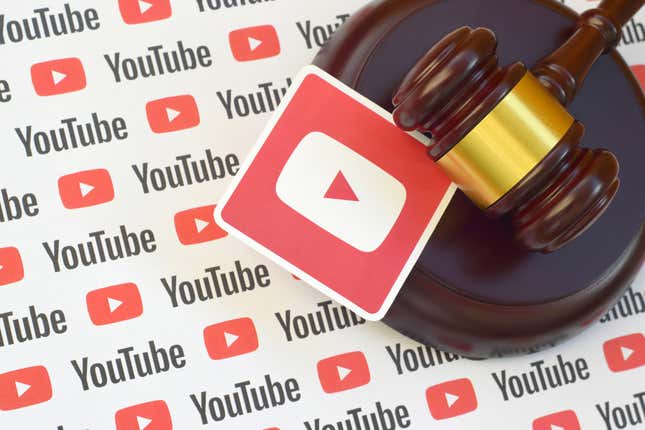
An Australian Court announced Monday that Google will need to pay $515,000 for refusing to remove two YouTube videos about John Barilaro, the former New South Wales state deputy premier. Despite those damages being a small drop in the bucket for Google and its owner Alphabet, it may be a canary in a coal mine for how even more social companies could face even more legal action for users’ content.
The videos cited in the suit were created by YouTuber Jordan Shanks, who also goes by FriendlyJordies. In September and October of 2020 he claimed Barilaro committed perjury, blackmailed councilors, corruptly gave millions to a beef company, and much more, according to the Sydney Morning Herald. Barilaro had originally sent a letter to Google that December, requesting they take down the videos, but they remained available into the following year.
AP reported that Australian Justice Steven Rares said Barilaro was the subject “of a relentless, racist, abusive and defamatory campaign conducted on YouTube.” Rares added that Google was responsible for the content that earned them thousands of dollars after being viewed hundreds of thousands of times before they were edited.
The judge said those videos were particularly “hateful,” “disturbing,” and baseless for its use of malicious anti-Italian slurs and empty accusations. According to Al Jazeera, the judge ruled that Google failed to follow its own policies around hate speech and bullying by keeping the videos up. The deputy premier resigned from politics in 2021, and claimed the videos and subsequent hate he received on social media had something to do with his decision. He then turned around and sued both Shanks and Google.
Shanks settled last November and agreed to edit the videos, but Google argued into 2022 that they were protected under Australia’s laws that the content was expressing an opinion and were of public interest, which is protected under Australian law. Google dropped their defense in March this year.
On Twitter, Shanks was particularly unremorseful, despite agreeing to retract his original videos under legal pressure. Google did not respond to a request for comment.
Why does Australia have a thing about defamatory online content?
Australia already has a weird thing about social media, but do tech companies in Australia really have a responsibility for what’s posted on their site? Back in 2021, Australian courts ruled that publishers can be sued for defamation based on public comments on social sites. CNN subsequently blocked access for Australians to its pages.
This funky, outdated law that puts the onus on social companies for what users say had companies like Facebook demanding the country revisit its defamation laws. Though it’s not like tech companies are blameless in all this. After all, whistleblower reports recently revealed Facebook blocked news content in Australia in retaliation for having to pay for news content.
Australia’s stance on anti-defamation is a wholly different case to the U.S., where internet companies are shielded by Section 230, a law that protects platforms for what their users post. Despite that precedent, 230 has come under attack from both Democrats and Republicans, but for totally different reasons. Those on the left claim that tech companies have abused 230 to avoid responsibility for the disinformation, conspiracies, and racism prevalent on the platforms. On the flip side, Republicans simply don’t like being blocked or censored for posting said disinformation. Republican-controlled states like Florida and Texas have even created laws that would allow users to sue for being “canceled” online. Both laws are being held up at different levels of the U.S. judiciary.
Yet Australia isn’t the only country that’s threatening social companies over their users’ content. The European Union is inching forward on its proposed Digital Services Act, which would reportedly require companies to deal with misinformation, alongside transparency of how they devour user information for targeted ads. A similar bill has been proposed in the U.S. House of Representatives.